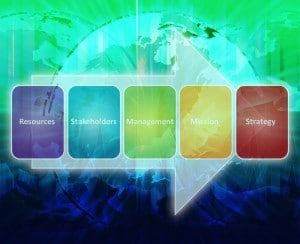Responsible Employers Pay Attention To These 3 Things

For businesses, it is no longer enough to have the best product on the market. Instead, what the discerning customer really wants is to be able to buy a product without feeling ethically compromised. What this means is that businesses need to be more responsible when it comes to issues of sustainability, health and safety, and ethics than ever before. A topic you can read more about in the post below.
Sustainability of their business
Businesses that want to be successful and responsible cannot ignore the importance of sustainability. Indeed, customers are becoming much more turned on to the current plight of the planet, and this means they increasingly want to work with businesses that are taking measures to reduce their environmental impact.
With that in mind, there are many actions that your business needs to consider. These range from the more basic ones such as instituting an effective recycling policy for the office and any production facilities you have. While more advanced options include working to change how your product is made, packaged, or even delivered to reduce the amount of waste, pollution, and energy used.
Health and safety at work
A responsible employer will also pay attention to the health and safety of their employees and customers in their business. This means they will not only take steps that they need to make legally for health and safety but also go beyond this to create a safe workplace and as conducive to wellbeing as possible.
Of course, the steps that each business should take will depend on the type of industry they are in and the risk they face. For example, in fields where employees often work at heights, the correct training, as well as the right safety gear, needs to be provided to ensure health and safety.
However, for industries where heavy machinery is regularly used such as manufacturing and construction, safety measures may include drug testing , thorough training, and the use of correct signage. All of which should ensure any accidents and risks are minimized.
Financial accountability
Financial accountability is also an important part of being a responsible employer. Of course, there are several aspects to this including making sure that your business’s bills are paid on time, and that you pay employees a living wage.
Financial accountability also means managing your business in a financially responsible way. That means not putting all of your resources into risky things like an expansion that does not have a good chance of being successful, and so can put your employee’s jobs at risk.
Another issue to consider is whether you are using your business money to fund ethical and sustainable investments. Whether that means buying supplies from ethical sources that do not use child labor or sweatshops or using sustainable sources that create products from materials grown in a way that doesn’t hurt the environment.
Additionally, as many businesses reinvest their profits in the financial market, choosing stock market investments that follow a strict code or promote environmental awareness is essential if they are to be responsible for their actions.


